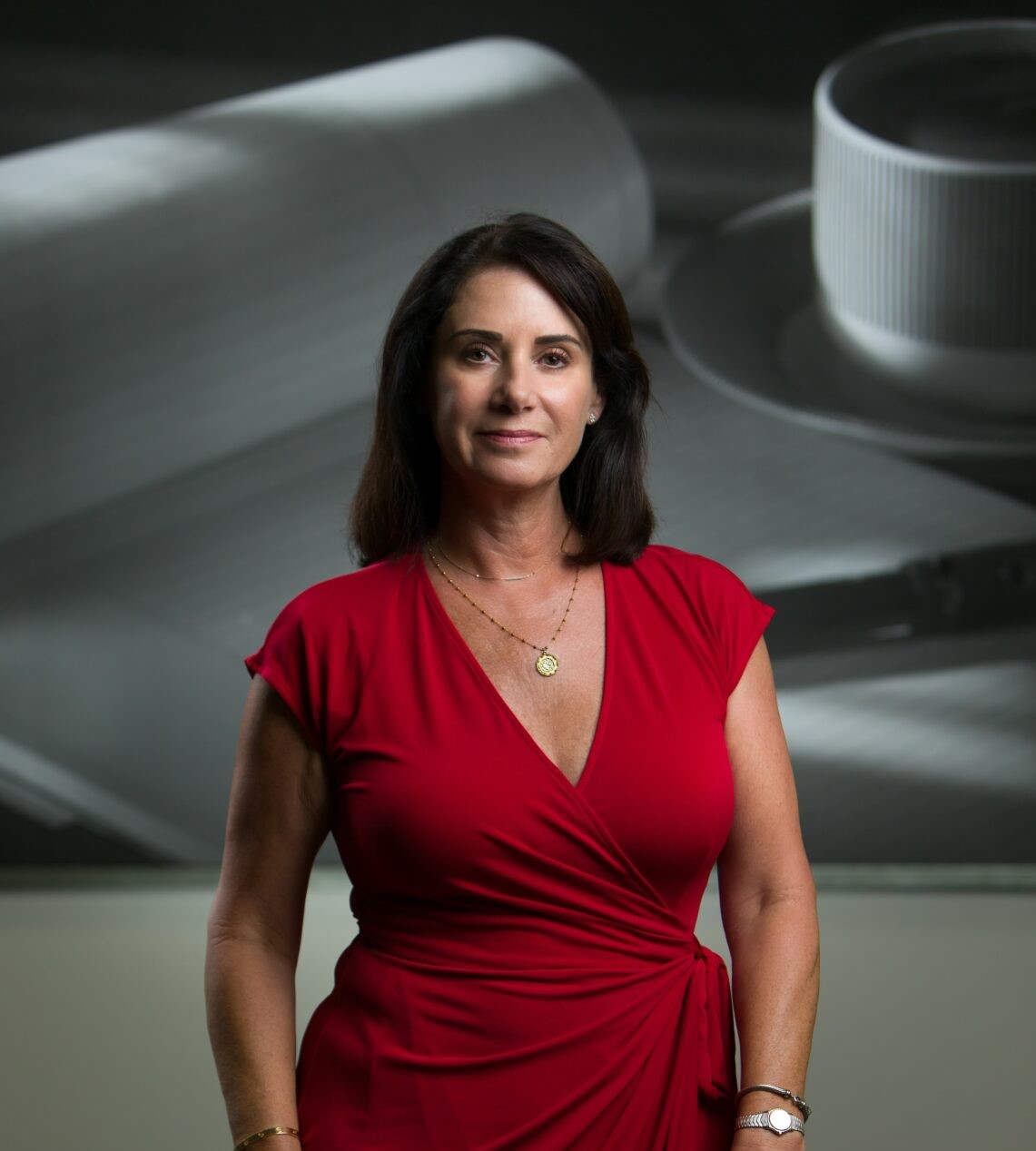Since taking over as CEO of Delray Beach-based Levenger last year, Margaret Moraskie has done more than just help the specialty retailer, now in its 35th year, survive the unique challenges of the COVID-19 pandemic. She’s guided it through a period of strong growth that’s ongoing to this day, thanks to a relentless focus on her customers and the products that enrich their lives.
It’s a tradition that extends to the establishment of Levenger in 1987 by Steve and Lori Leveen, and one that’s essential to the success of a company known for its luxury pens, fine stationery, professional notebooks and portfolios.
“I read customer feedback every single morning, good, bad, and otherwise, and I reply personally a lot of the time—even though sometimes they don’t believe it’s me,” Moraskie says with a laugh. “Steve Leveen started this honest dialogue with customers long before I got here, because telling the truth is so much easier than coming up with a marketing tagline.”
Words to live by. Moraskie shared more of her journey with SFBW.
Tell us about your hiring and succession of roles.
I took a break that lasted about five months before I got a phone call about Levenger. They were looking for a VP of marketing. I knew the brand. I knew of the Leveens through our former CEO at another company. I was excited to come back to a smaller business with a direct-to-consumer side and I was thrilled to get out of women’s apparel and fashion and the pace of that. I love to read, I love to write, so I said, okay, this will be fun. It will be a big change, but I’ll be able to have a big impact. They made me [chief marketing officer] CMO and last year they asked me to take over the role of CEO, as the current CEO was considering retiring. I’m super proud to be the first female CEO the company has had.
Had you worked with craft goods and luxury goods like this before?
Nope. Early on when I was with a department store, I worked in hard goods. Curling irons, hair dryers, cookware, but I had never worked with anything like this. I had been with high-end retail. Levenger is luxury. You’re talking about a $90 notebook. But I so believed in it and the proposition and the legacy of customers.
What happened to the business during the COVID-19 pandemic?
A couple things happened. As a career retailer, I’ve never seen so much change so quickly. Everything has been accelerated, and it seems every time we turn around in the last 18 months, something else is thrown at us to overcome, while you’re still trying to make your customers happy and ensure the product is the way it’s supposed to be. What happened to us last year was that we were seeing some nice growth, plodding along, and, last year, everybody needed what we had. When you’re going to spend all day long in front of your computer or at your desk at home, what we found was that folks wanted quality, something that could last, something they can count on. We had, by sheer good fortune, just developed a line of no-room-for-a-desk desks, which launched right in March of 2020. So we were pleasantly surprised. We saw the COVID bump while a lot of retailers didn’t. And it’s something we contend with now into this year.
Are there supply chain issues?
Yes, things are taking much longer to get here and we’re carrying a lot of backorders to fulfill. I just wrote a letter to all the customers who have been waiting, and I didn’t sugarcoat it. They were appreciative.
What other challenges has the COVID-19 era brought to you?
The cost of shipping. How do you do it, in the era of Amazon, when they ship everything for free? We basically break even on our shipping. We’re not looking at it as a profit center. So that cost of shipping went up and customers, they see that everybody ships free, they’re not seeing the numbers on the back end for the P & L [profit and loss] for that. That was a huge issue over the course of the year. It made the holiday last year extremely difficult because none of the shippers would guarantee that you could get it for Christmas. We didn’t want to disappoint folks. We basically stopped promising a guaranteed delivery three or four weeks before we normally would, and obviously business takes a hit those weeks before Christmas when folks emergency shop.
What kind of marketing do you do?
We started as a catalog company. We still mail a significant number of catalogs every year. That’s scaled down to be offset with a lot of digital marketing and direct mail, and we did do a big social push when I got here. The power of customers and people telling other people that they love something is much more powerful than me telling them. So we’ve grown our social following and engaged on those platforms, particularly Instagram, which lends itself to beautiful photography, which is something that we have. We would love to do more video. And, not by accident, we did partner with Tilson PR back in January. There was no PR. I thought that a challenge we faced was that a lot of people thought we went out of business. We used to have 10 or 11 stores. They’ve closed over time. When stores close and you’re out–of–sight, out–of–mind, people automatically assume you’re out of business. We’ve spent a lot of time reminding people that we’re still here.














